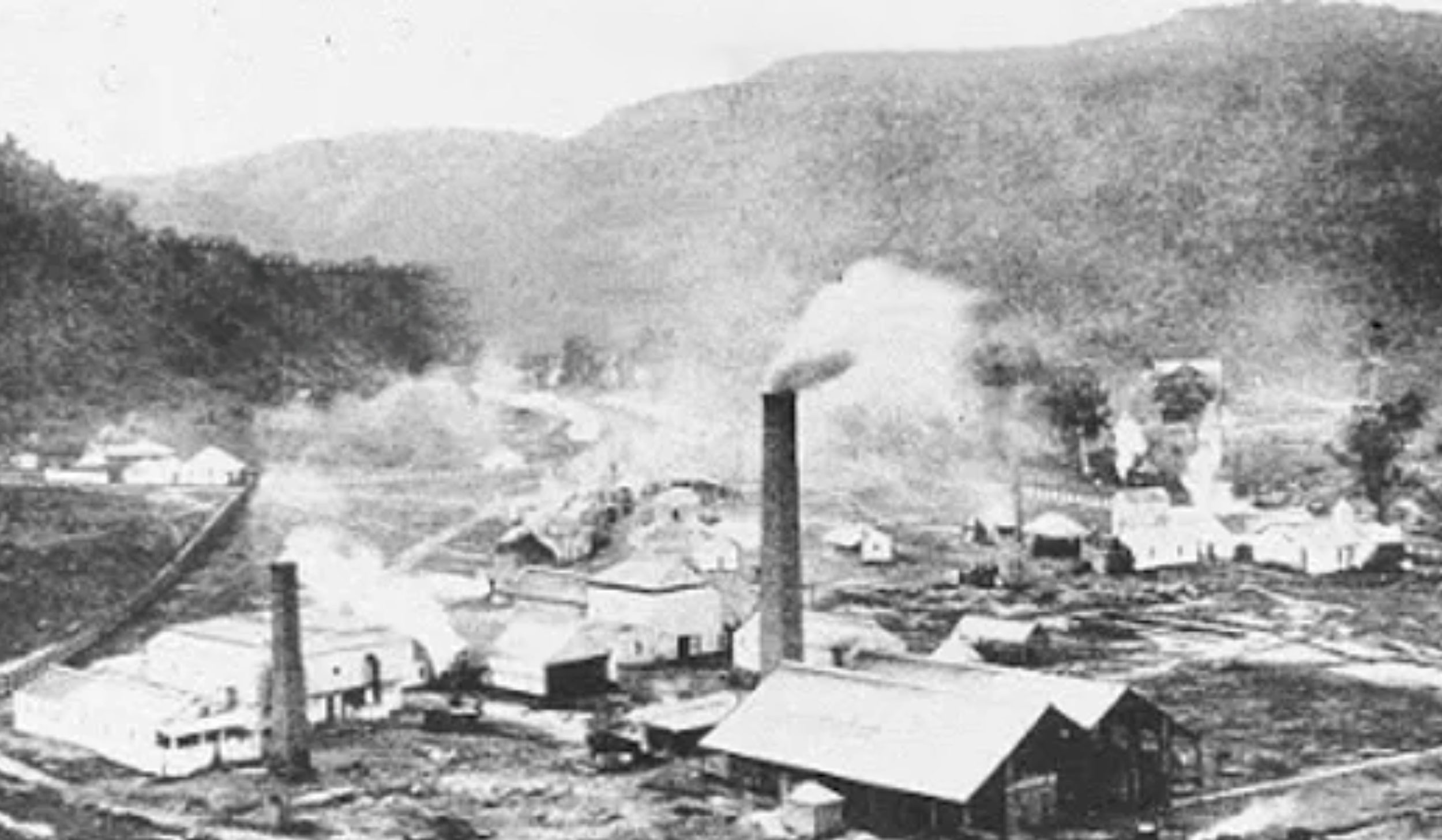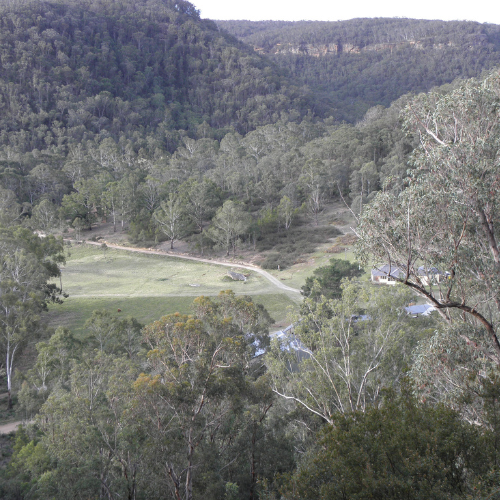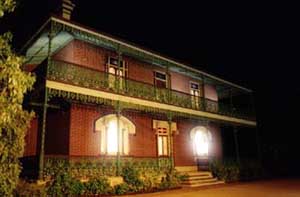
The valley of no return…
by Murray Byfield

Joadja – The Australian Kerosene Oil & Mineral Company in its heyday.
Joadja was the site of the Australian Kerosene Oil and Mineral Co from 1870-1911. It was also home to nearly 1100 people most of which were Presbyterian Scots who immigrated to Australia for the sole purpose of working at the shale oil facility an area where they had plenty of experience due to a number of mines in Scotland. At the time there were virtually no skilled workers in Australia with any experience in the shale oil industry.
Joadja sits at the bottom of a deep valley which was once a prehistoric lake. The organic matter from the lake over millions of years created the shale rock which for thousands of year’s aboriginals called “fire stone” due to the observation that the stones caught alight when thrown on a fire. As well as oil shale, coal was also mined at Joadja which was used in the refinery process and some was exported out of town.
There was also a large orchard which helped feed to the workers and their families, some of the produce was also sold elsewhere.
Workers and their families’ fares to Australia were paid for by the company under the proviso that they had to work for the company for two years to pay back the cost of their passage. Many workers and their families stayed on after their time had expired as they had nowhere else to go.
As well as the mines and refinery, Joadja had a school, orchard, school of arts (including a masonic lodge). The main residential area was a small main street called Carrington Row where the workers and their families lived in small brick and timber huts.
Life at Joadja was very harsh numerous deaths occurred due to industrial accidents. Work hours were long and employees were underpaid or not paid at all. Tragic murders, suicide and rapes also took place there. Many residents felt trapped in Joadja and many never made it out alive. Those who did not make it out are buried in the company’s cemetery nearby.
Until the railway was built a treacherous bush track winding up the mountain side was the only way out. This earned Joadja the nickname of “the valley of no return”.
Several Ghosts are believed to inhabit Joadja:
The Face on the Wall
The face on the wall refers to the story of the death of the father of a servant girl by the name of Linda who was working in the orchard manager’s house. The story goes that the girl got the job of a maid at the house as her father Jock had become too unwell to work in the mines. One night she decided to stay at a spare room at the house, as the creek was dangerous to cross when it was flooding as it was this cold, dark rainy night. When the manager discovered her there, he sexually abused her. This abuse continued for months until her father learned about the despicable goings on. Her father confronted the manager who was younger and fitter and the girl’s father and was killed in the fight. With his last dying breath he swore he would never take his eyes of her again. After his death a face inextricably appeared on one of the walls in the manager’s house. It has remained there ever since. 
The Managers House.
The Dedicated Tram Worker
Tells the story of a happy tram worker who was crushed to death between two coal skips at the incline.
After his death his workmates donated money to his wife and children to help keep them fed and clothed. In appreciation the tram worker in spirit would turn up for work every day and watch over his mates, keep them safe and help them in any way that he could from the spirit world. He would whistle a familiar tune to let his workmates know he was around.
He has been witnessed on the tramways, felt by explorers hiking up the steep incline. He is said to be very kind to anyone who gives to the well-being of his family. 
The Incline
View from the top of the Incline.
The Headless Lady
At the cemetery, Carrington row and the creek an apparition of a headless lady ghost has been witnessed by many people.
The story says the 18-month-old daughter of the lady drowned in Joadja creek. The lady was grief stricken that she could have saved her daughter’s life committed suicide by slashing her own throat. As suicide is strictly against Presbyterian belief her body was not allowed to be buried within the cemetery confines. Yet the community in sympathy compromised and allowed her body to be buried within the cemetery boundary but the head had to be outside the fence line.
As a result, her body could go to heaven as it was buried within the grounds, yet it could not leave the earthly plane without its head. So, it is said her spirit is doomed to wander the valley blood still gushing from her neck, searching for her child and calling for her husband to save her from eternal damnation.
A House on Carrington Row
Sources:
The Ghosts of Joadja

